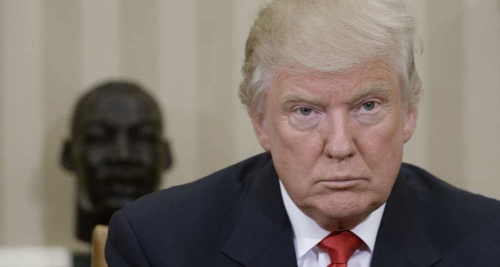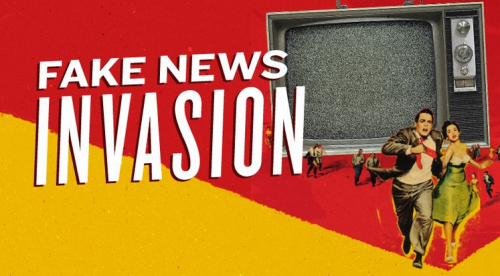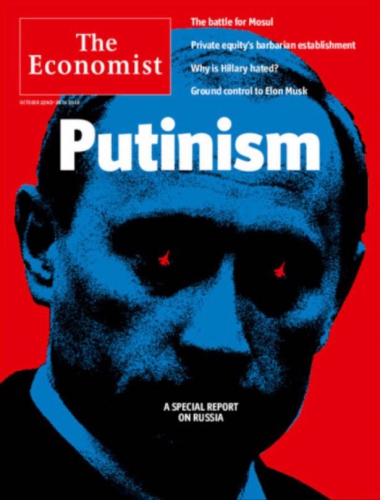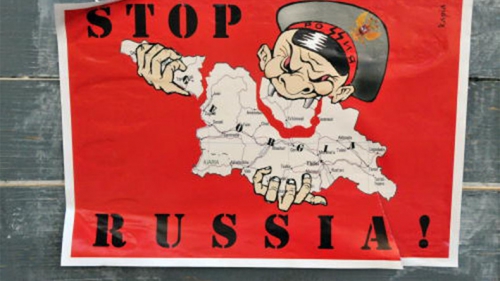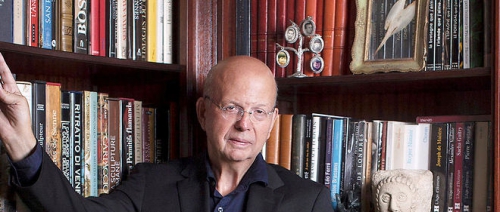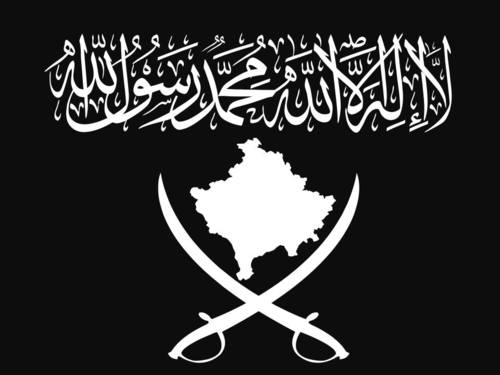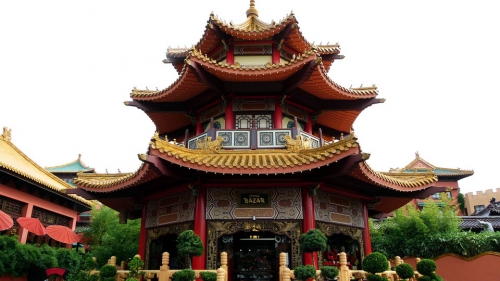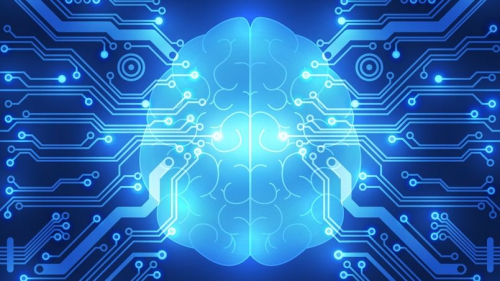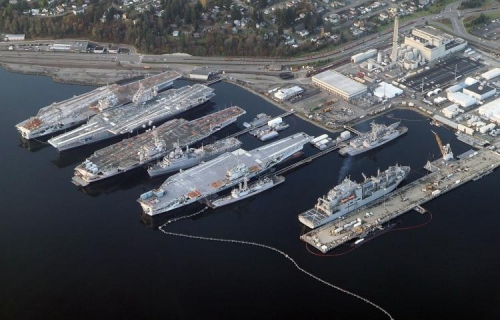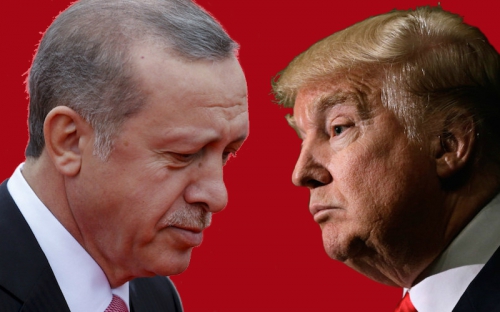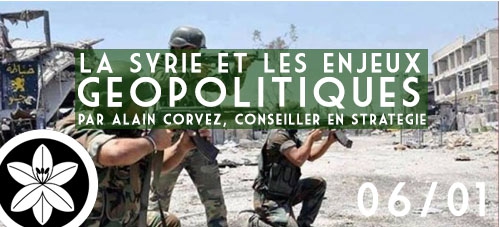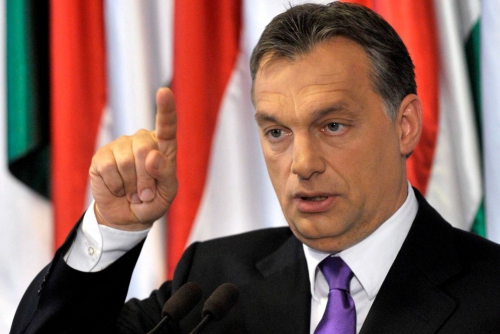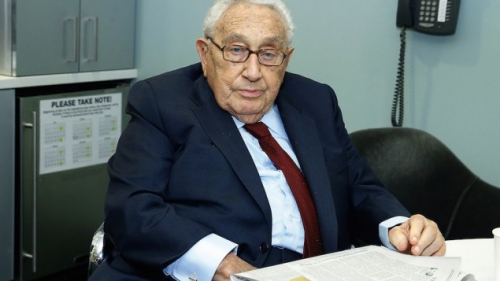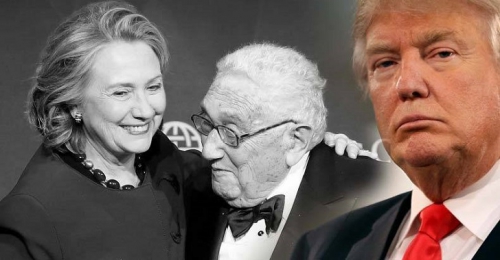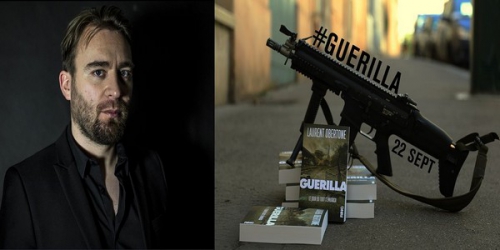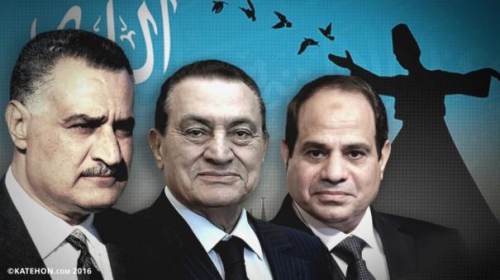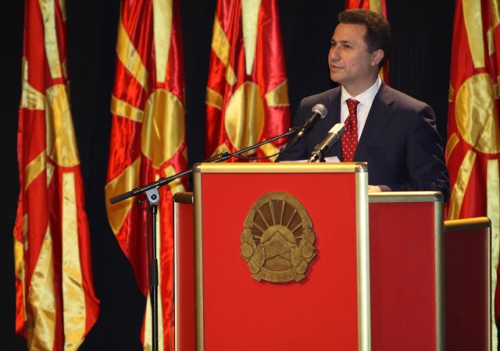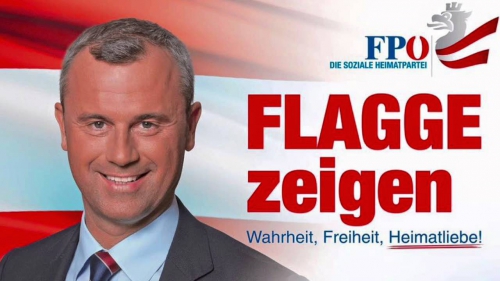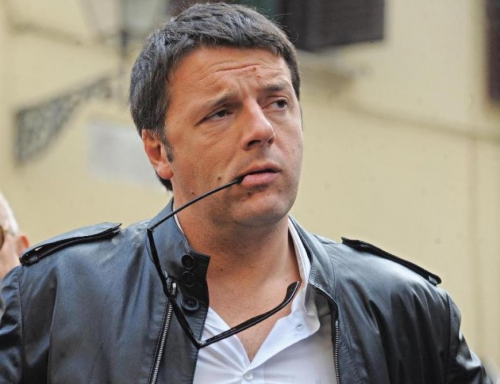
Russophobie et haine de Poutine: les chiens aboient
par Guillaume Faye
Ex: http://www.gfaye.com
En effet ”les chiens aboient, la caravane passe ”, c’est-à-dire que Moscou ne se laisse pas impressionner. La majorité des médias occidentaux a présenté l’intervention russe en Syrie comme une entreprise criminelle et impérialiste. C’est dans la logique stratégique de la diabolisation de Poutine ; le but est d’entraver le rétablissement de la Russie comme puissance internationale. Inventer une menace militaire russe, répéter que la Russie vit sous une dictature, prétendre que la Crimée a été annexée et l’Ukraine agressée – prétexte des sanctions occidentales, totalement contre–productives – tout cela fait partie d’une politique pensée dès 2011 pour relancer la guerre froide mais aussi pour contrer le ”mauvais exemple” idéologique que donne la Russie de Poutine : patriotisme, restauration des valeurs traditionnelles, refus de l’idéologie gaucho– libertaire, populisme, défense de l’identité nationale, etc. La nouvelle Russie incarne tout ce que qu’abhorrent les classes dirigeantes occidentales, oligarchies coupées de leurs peuples. (1)
L’intervention russe en Syrie : mensonges et réalités
La reprise d’Alep par les troupes et les alliés chiites de Bachar el–Assad, aidés de manière décisive par l‘aviation et des détachements russes, a donné lieu à des accusations de « crimes de guerre » contre des populations civiles ; Vladimir Poutine a été accusé d’être le premier responsable, en tant que principal soutien d’ Assad. Ce dernier n’est certes pas un enfant de chœur mais il n’est pas pire que d’autres grands amis d’un Occident qui ferme par exemple les yeux sur les massacres que commet l’Arabie au Yémen. Les médias occidentaux ont exagéré, mensonges à l’appui, les exactions d’Assad, au cours de cette guerre civile, et caché des faits gênants.
La propagande anti-russe a dissimulé que les massacres de civils, femmes et enfants, commis à Alep, ne l’ont pas été par les troupes d’Assad et ses alliés ou par l’aviation russe, mais par des tirs d’artillerie des ”gentils rebelles”, qui sont en réalité des islamistes fanatisés. Ils sont armés par les Américains, les Saoudiens et les monarchies du Golfe. Les assassins ne sont pas ceux qu’on croit.
La Russie est clouée au pilori, alors que tout le monde sait bien que toute opération militaire aérienne – y compris celles que mène la France, sous le commandement du suzerain américain – donne lieu à des dégâts collatéraux. On n’a jamais accusé de « crimes de guerre » les dirigeant américains, alors que, depuis un peu plus de 70 ans, l’USAF a, au nom de la ”guerre juste”, commis le plus grand nombre de massacres de civils et de destructions de toute l’histoire. Les derniers en date concernaient la Serbie et l’Irak.
Dans cette affaire, les États–Unis et le gouvernement français qui lui obéit prennent objectivement le parti de l’islamisme sunnite terroriste, qui devrait être l’ennemi principal. Il l’est en parole – par la bouche de M. Le Drian – mais pas dans les faits. Ivan Rioufol remarquait justement et courageusement : « la menace que fait courir aux démocraties le totalitarisme islamique mériterait une riposte qui ne vient pas. Au contraire : les ”rebelles” islamistes d’Alep–Est (Syrie), soutenus par Al–Qaida, le sont aussi par les États–Unis et la France, qui se désolent de leur défaite. Cette inconséquence hisse Vladimir Poutine, protecteur des chrétiens d’Orient ciblés par les djihadistes, en leader respectable » (Le Figaro, 16/12/2016).
Quant à l’ ASL (Armée syrienne libre) qui combat Assad, financée par l’Occident, il s’agit de troupes très louches, à la frontière du terrorisme islamiste, susceptibles de changer de camp comme de chemise. En voulant maintenir (pour l’instant…) Assad et les Alaouites au pouvoir en Syrie, la Russie joue la carte de la stabilité.
Si les Russes n’étaient pas intervenus pour empêcher la chute d’Assad, la Syrie serait devenue un enfer islamiste. Assad aurait été remplacé par Dae’ch et le chaos fondamentaliste se serait installé. Avec toutes les conséquences que l’on devine en Occident.
Provocations occidentales contre la nouvelle Russie
Ce sont d’ailleurs les interventions américaines en Irak, qui ont déstabilisé le Moyen–Orient et favorisé l’islamisme. C’est depuis la chute de Saddam Hussein que les chrétiens d’Orient sont éradiqués. L’Occident, suicidaire, a allumé le feu, là où la Russie veut l’éteindre. À ce propos, il faut rappeler la genèse de la nouvelle guerre froide (voulue) entre les gouvernements européens et leur suzerain d’outre Atlantique et la Russie de Poutine.
Après la chute de l’URSS en 1991, la Russie, dirigée par le faible Eltsine, en perte de puissance, a été dominée par les États–Unis qui cherchaient à la neutraliser et à la vassaliser. Le réveil russe, opéré grâce à Poutine, n’a pas été accepté par les dirigeants occidentaux. On a donc inventé une ”menace russe”. La stratégie choisie, élaborée par la CIA et les planificateurs de l’Otan – américains et européens obéissants– fut celle de la provocation. Avec deux cibles : la Géorgie et l’Ukraine. En promettant à ces deux pays, contrairement aux engagements pris envers les Russes en plein désarroi lors de disparition de l’URSS, de les intégrer dans l’Union européenne et dans l’Otan, en sachant que ces deux hypothèses étaient absurdes économiquement et stratégiquement.
Le but de la provocation occidentale était seulement d’amener les Russes à réagir violemment, afin de créer un espace conflictuel. Mais cette stratégie a échoué, non seulement à cause de la mollesse et de l’indécision du président Obama qui devait gérer une situation décidée par d’autres que lui, mais aussi parce que le gouvernement de Poutine, contrairement à celui de Eltsine, a procédé à un redressement de la puissance russe et a décidé de ne pas se laisser impressionner et de ne pas céder.
Trump et la Russie : promesses et contradictions
Normalement, lorsque Donald Trump entrera en fonction fin janvier 2017, il rompra avec cette politique sournoisement pro–islamique, anti–israélienne et russophobe de l’administration Obama. Mais, il faut surtout espérer que, suivant son programme révolutionnaire de politique étrangère, il osera une convergence USA–Russie, en rupture complète avec la politique des États–Unis depuis 1945. Si Donald Trump tient parole et résiste aux puissantes forces qui veulent infléchir sa politique, ce rapprochement avec la Russie, virage à 90°, sera un bouleversement majeur dans la géopolitique mondiale. Très hostile à Pékin, le nouveau président américain, s’il est bien conseillé – car il ne brille pas par sa subtilité – peut créer un séisme : une alliance Washington–Moscou (Trump–Poutine) constituerait une redistribution mondiale de toutes les cartes. Avec, à la clé, la fin de l’atlantisme. Les castes politiques et médiatiques européennes seraient déstabilisées, ne sachant plus à quel saint se vouer. Un axe Amérique–Europe–Russie est au bout de cette logique qui passe au dessus des petits calculs des dirigeants européens qui seraient complètement dépassés. L’Europe est le maillon faible. Les promesses de Trump – comme je l’ai déjà dit dans ce blog– sont tellement porteuses de bouleversements fondamentaux qu’on se demande si elles sont sérieuses et si elles pourront être tenues.
Le sérieux problème auquel se heurtera Trump après sa prise de fonctions le 20 janvier est qu’il devra concilier sa volonté affichée de se rapprocher de la Russie avec l’implication de cette dernière aux côtés de l’Iran : coopération dans la guerre en Syrie, livraisons d’armes, etc. bref, relations au beau fixe. Car Trump, tout comme le gouvernement israélien, veut rompre avec la politique d’Obama favorable à Téhéran et dénoncer l’accord sur le nucléaire. Cette contradiction – s’allier avec l’ami d’un ennemi – sera très difficile à gérer.
Vladimir Poutine a récemment déclaré, voulant réinstaurer la Russie comme très grande puissance : « Nous devons renforcer le potentiel militaire de nos forces nucléaires stratégiques, en particulier avec des installations de missiles qui puissent pénétrer tous les systèmes de défense anti–missiles existants et futurs. » Allusion au ”bouclier anti–missiles” installé par les Américains en Europe centrale… Peut-être Poutine a–t–il voulu répondre à son imprévisible ”ami”, le futur président Trump, qui avait fait savoir, quelques jours auparavant, prenant le contrepied des positions d’Obama : « Les États–Unis doivent considérablement renforcer et étendre leurs capacités nucléaires, en attendant le moment où le monde deviendra raisonnable ». Il aurait confié à Mika Brzezinski de MSNBC : « Qu’il y ait donc une course aux armements ! On les surpassera à tous les coups et on leur survivra tous. » Bref, les choses ne sont pas claires.
Le déshonneur du gouvernement français
Les médias et le gouvernement français considèrent Poutine comme un affreux autocrate. En refusant de le recevoir à l’inauguration de la cathédrale orthodoxe de Paris, M. Hollande a commis une très grave faute diplomatique, obéissant probablement à un ordre venu d’outre Atlantique. Le président français n’a même pas humilié M. Poutine ou la Russie, c’est la France et son indépendance qu’il a humiliées.
Mais, dans le même temps, Ségolène Royal, ministre représentante de l’État, aux obsèques de Fidel Castro, a fait officiellement l’éloge de ce tyran assassin, petit Staline tropical. Donc Poutine est infréquentable pour l’État français, pas le criminel Castro.
Le record de gaffes détenu par Mme Royal n’est pas en cause ; toutes les semaines, elle en commet une sur tous les sujets. Ce qui est en cause, c’est que la France, les gouvernements européens et l’UE, qui diabolisent le Kremlin, entretiennent d’étroites relations (intérêts financiers et corruption obligent) avec des monarchies du Golfe absolutistes et tyranniques, en fermant les yeux sur leurs exactions : notamment l’Arabie saoudite et le Qatar. L’adoration des ”droits de l’homme” est un culte à géométrie variable.
Ambiguïtés et reculades de François Fillon
François Fillon, qui espère être élu président, commence déjà à se démarquer de Poutine, après avoir pris une position pro–russe en demandant l’arrêt des sanctions et la reprise d’un dialogue avec Moscou. Il a été très gêné que le président russe fasse son éloge. Poutine avait qualifié Fillon, de « grand professionnel qui se distingue fortement des hommes politiques de la planète ». François Fillon avait pris partie pour la Russie en reconnaissant que c’est le parlement ukrainien qui refuse de voter l’accord sur l’autonomie des parties orientales russophones de l’Ukraine. Mais très rapidement, il a reculé. Passer la marche arrière est une habitude chez ce ”pilote de course” autoproclamé.
Son porte–parole et conseiller, Jérôme Chartier, a cru bon préciser le 18 décembre : « ils se connaissent et se respectent mais ce ne sont pas des amis ». Être l’ ”ami” de Poutine est infâmant. Si M. Fillon est élu, on peut parier qu’il trouvera un prétexte pour changer d’option et ne pas exiger une levée des sanctions de l’UE contre la Russie.
Le gagnant de la primaire a fait cette déclaration d’allégeance humiliante à Washington, empreinte d’une russophobie bas de gamme : « l’intérêt de la France n’est évidemment pas de changer d’alliance en se tournant vers la Russie plutôt que les États–Unis. […] Nous sommes les alliés des États–Unis, nous partageons avec les États–Unis des valeurs fondamentales que nous ne partageons pas avec les Russes et nous avons une alliance de sécurité avec les États–Unis, donc nous n’allons pas la remettre en cause » (débat télévisé du 24 novembre l’opposant à Alain Juppé). Quelle soumission… Et en même temps, le pseudo pilote de course parle de « retisser un lien avec la Russie et l’amarrer à l’Europe ». Il juge la politique de Hollande « absurde » qui « conduit Moscou à se durcir, à s’isoler, à actionner les réflexes nationalistes ». Il affirme que la Russie, puissance nucléaire, est « un pays dangereux si on le traite comme nous l’avons traité depuis cinq ans . Propos contradictoires, où l’on change d’avis comme de chemise sans affirmer une véritable position
Victoire géostratégique de la Russie
Le 20 décembre, réunis à Moscou, les ministres des Affaires étrangères et de la Défense russes, iraniens et turcs ont déclaré conjointement que « le combat contre le terrorisme » était leur objectif et non pas de renverser le régime de Bachar el–Assad. C’est un camouflet pour les États–Unis et l’Union européenne, pour qui l’expulsion d’Assad est un préalable, et qui n’ont même pas été invités à la réunion de Moscou. La victoire du Kremlin est totale puisqu’il a réussi à faire renoncer la Turquie à sa volonté d’éliminer Assad. Seul Poutine décidera de son sort. Sergueï Shoïgou, ministre russe de la Défense, a déclaré que les Occidentaux avaient tout faux, ayant totalement échoué au Moyen–Orient et « n’avaient plus d’influence sur le terrain ».

La victoire de la stratégie de Poutine en Syrie et au Moyen Orient enrage les Occidentaux, d’autant plus que la Russie, par ce biais, a réussi à redevenir une puissance internationale pour tous les pays du monde. « Les Russes se substituent aux Américains comme grande puissance de référence de la région », note Renaud Girard en parlant du Moyen–Orient (Le Figaro, 20/12/2016).
Les relations ”amicales ” entre la Russie et la Turquie sont factices et calculées. Les deux puissances sont rivales depuis des siècles, les Sultans contre les Tzars. Le Kremlin joue une carte machiavélienne vis–à–vis de la Turquie du néo-sultan Erdogan qui voudrait ressusciter la puissance ottomane. La Russie s’est réconciliée avec la Turquie malgré l’incident aérien où un avion russe a été abattu. Et l’assassinat d’Andreï Karlov, ambassadeur à Ankara, le 19 décembre, a peut-être des causes très louches et tortueuses, dans lesquelles le pouvoir turc est impliqué pour faire pression sur la Russie. Il est possible aussi qu’il s’agisse tout simplement d’une négligence du pouvoir turc, qui n’a pas su repérer le policier tueur. Ce qu’il faut retenir de cette partie d’échecs, c’est que la Russie a pu rallier à sa stratégie un pays pilier de l’Otan, la Turquie. Ce qui inflige un douloureux revers à la politique mondiale américaine. Le Kremlin a arraché à Washington un de ses alliés, pardon, un de ses vassaux.
Mais bien entendu, le Kremlin n’a pas commis l’erreur de céder, comme l’UE, au chantage des Turcs pour admettre sur son territoire des centaines de milliers de réfugiés !
Pour le système, la menace russe est d’abord idéologique
La Russie de Poutine est devenue l’ennemie (bien plus que la Russie soviétique !) parce qu’elle restaure et incarne des valeurs et des principes de patriotisme, d’enracinement et de traditions, honnies par l’idéologie dominante à l’Ouest. Poutine est détesté parce qu’il semble s’inspirer du Tzar Alexandre III, qui s’appuyait sur l’Église orthodoxe et le populisme (c’est–à–dire l’esprit du peuple) et pratiquait l’autorité souveraine. Les oligarchies occidentales ont la hantise de la démocratie directe ou ”césarisme”, ou encore ”populisme” – dont le bonapartisme et le vrai gaullisme furent des déclinaisons – qui menacent leur pouvoir.
Donc, la russophobie des castes politiques dirigeantes et des médias occidentaux s’explique pour des raisonsidéologiques et non pas pour des raisons géostratégiques de menace militaire – totalement inventée– de la Russie. Ce dont ils ont peur, c’est que l’exemple du régime russe actuel, les valeurs qu’il défend n’influencent les opinions publiques occidentales, lassées par le décadentisme, et les dangereux partis ”populistes”. Le FN et d’autres abominables partis d’ ”extrême–droite” ne sont-ils pas pro-russe ? Paradoxe suprême : de même que pour l’ancien pouvoir soviétique, l’exemple du capitalisme occidental du ”monde libre” représentait un péril, de même, pour les pouvoirs occidentaux actuels, l’exemple du patriotisme et de l’idéologie identitaire de la Russie de Poutine constitue un très grave danger d’influence et d’encouragement des mouvements ”populistes” honnis.
Poutine dérange parce qu’il défend une idéologie patriote qui est détestée par l’hyperclasse médiatique, politique, ”intellectuelle” et culturelle occidentale, idolâtre du cosmopolitisme. Poutine et le gouvernement russe ne sont pas du tout ciblés par les oligarchies parce qu’ils représentent un régime tyrannique ou qu’ils risqueraient de déclencher une agression militaire contre leurs voisins. Personne ne croit à cette hypothèse stupide, même la propagande de l’Otan qui la diffuse pourtant en permanence. C’est encore moins crédible que l’attaque de l’Occident par l’URSS, menace agitée du temps de Brejnev. Poutine essaie de restaurer la dimension spirituelle de la souveraineté, héritée de l’ère tsariste, associant orthodoxie religieuse et pouvoir patriote fort. Avec le recours aux grandes figures historiques russes, comme le prince Vladimir, équivalent chez nous de Jeanne d’Arc. On comprend que cela soit diabolique aux yeux de la majorité de nos journalistes et politiciens.
(1) Voir autres articles de ce blog sur les rapports entre la Russie et l’Occident.




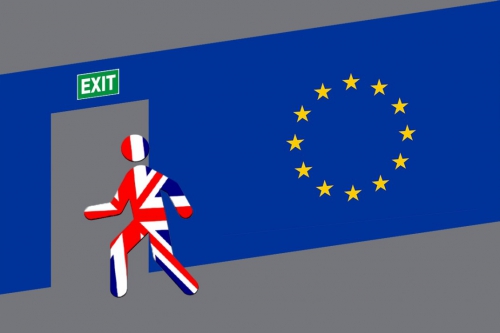

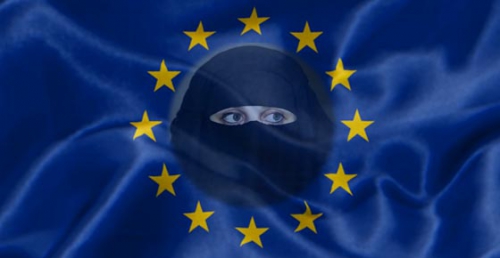

 del.icio.us
del.icio.us
 Digg
Digg